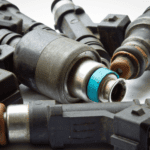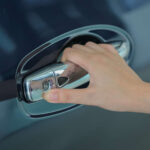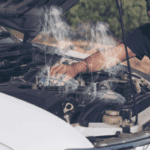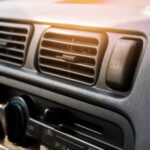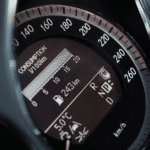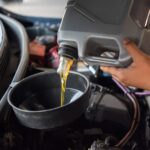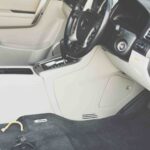Can you hear a grinding noise when reversing? Well, there are several areas of concern, one of which is the most apparent but expensive to repair, a transmission-related problem. This article covers all the transmission-related issues and many other causes of grinding noises.
Transmission Related Causes of a Grinding Noise in Reverse
- Worn or damaged gear teeth
When you shift your car into reverse and hear a grinding noise, it’s an indication the teeth on a gear inside the gearbox or in the differential are damaged. The gearbox is responsible for transmitting power from the engine to the wheels. The transmission box contains several gears that mesh together to facilitate this power transfer. Each gear has a set of teeth that interlock with the teeth on other gears to create a smooth, efficient power transfer.
However, if the gear teeth become worn, chipped, or misaligned, they can no longer mesh together correctly, resulting in a grinding noise when the gears engage. This grinding noise occurs because the damaged gear teeth rub against each other instead of smoothly meshing together.
If the grinding noise occurs only when reversing, it’s possible that the reverse gear specifically is damaged. The reverse gear is often smaller and has fewer teeth than the other gears, making it more susceptible to damage.
- Low transmission fluid levels
The transmission fluid lubricates the gears and keeps the temperatures down inside the gearbox. When the fluid level is low, there may not be enough lubrication to prevent metal-to-metal contact between the gears. As a result, the gears can become worn or damaged, which can cause a grinding noise when they engage. This noise occurs because the damaged gears are not meshing together properly.
In addition to causing grinding noises, low transmission fluid can cause problems such as rough shifting, popping out of gears, and overheating.
- Malfunctioning clutch components
When shifting into reverse, a malfunctioning clutch or one of the supporting components can cause grinding noises. The clutch is responsible for disengaging the engine from the transmission, allowing the gears to be shifted smoothly.
If a clutch component, such as the clutch disc or pressure plate, is worn or damaged, it may not fully disengage the engine. This can cause a grinding noise when reversing, as the clutch may slip when trying to engage gears, causing them to grind against each other instead of meshing together smoothly. The same problem can occur if the clutch pedal is not fully depressed.
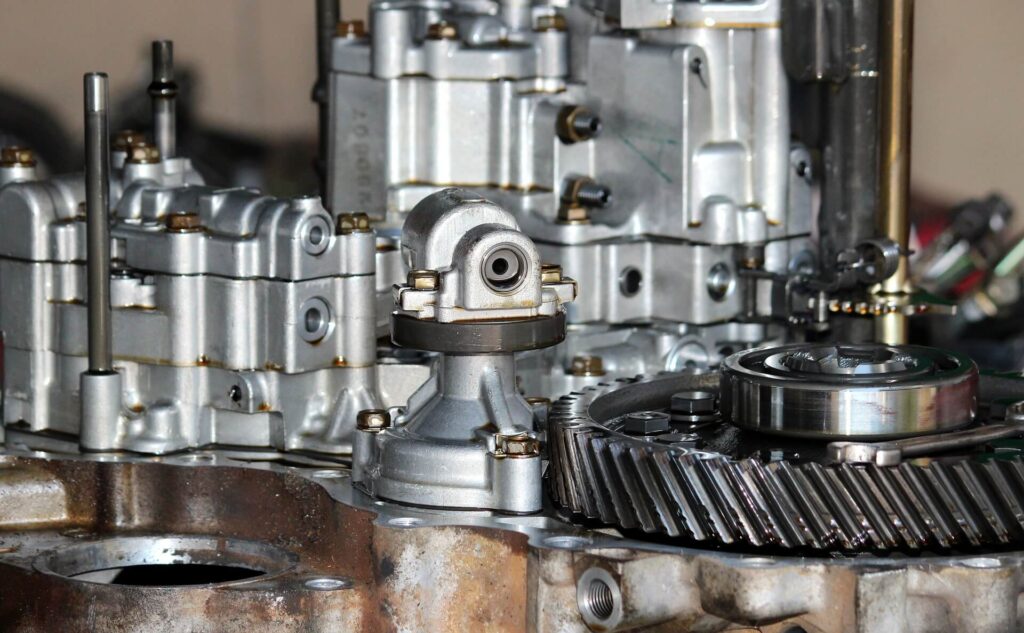
Other Causes of a Grinding Noise When Reversing
- Bodywork
Damaged or broken trim, such as the wheel arch (fender) liner catching on the tire tread blocks, is more common than you might think. If debris in the road gets flicked up by wheels and smashes into the trim or forces it loose, it rubs on the tire. It may not catch on the tire when the car travels forwards, but it’s a different story when traveling in reverse, and the plastic catches on the tread blocks making a loud noise.
- CV joints
Constant velocity joints, aka CV joints, can usually be heard clicking when they wear out; however, it is not uncommon to hear a grinding noise when the car is in reverse, and the wheels are turned in either direction. This means the CV joint is either worn or damaged. CV joints commonly fail because the CV gaiter, which holds the grease in and keeps the CV joint lubricated, has split, the grease has leaked, and the CV joint has dried out.
- Brakes
There are a few different causes of a grinding noise caused when reversing, which can be caused by the brakes:
- Brake pads are worn out and grinding into the rotors.
- Debris (rock)caught in the brakes and is catching on the rotor.
- Rotor dust shield damaged or loose rubbing on the rotors.
- The lip of the worn brake rotor catches on the brake pad.
- The brake pad retaining clip is broken and touching the rotor (commonly only heard when reversing).
- Damaged A.B.S ring catching the sensor
Each of these problems can be heard when driving forwards or braking, but it may not be easy to hear them over engine noise when traveling at speeds. Reversing may be the only time the engine is quiet enough to hear the issues.
- Suspension
A grinding noise from the suspension can happen, specifically when a coil spring breaks and hangs out of the spring pan. The spring catches the edge of the wheel and causes a grinding noise, alongside other problems. It’s a problem worth pointing out because it can be heard at random times, like when reversing. Other noticeable problems like difficulty steering, rattling noises, and the spring can puncture a perfectly good tire.
Is It Safe to Drive With a Grinding Noise When in Reverse?
The problem with saying it’s safe or unsafe to drive with any fault to the car is no one knows how much damage is already done. In this instance, the transmission, without removing and inspecting, could be a ticking time bomb and lead to the car breaking down. But in theory, driving with a grinding caused by the reverse gear is possible, just as long as you don’t need to reverse!
In the real world, it’s impossible, and the problem will need to be rectified immediately because if the reverse gear teeth are chipping away, the metal debris will cause damage to the forward gears. Even though it’s an expensive repair, regardless, replacing one reverse gear is much cheaper than replacing the whole gearbox.
Preventing a Grinding Noise When Reversing
Assuming the grinding noise is/was a transmission-related fault, here are some tips to help prevent gear grinding:
- Check the transmission fluid regularly and add fluid as needed to ensure the gears are adequately lubricated.
- Fully depress the clutch pedal when shifting into reverse to disengage the engine from the gearbox.
- Avoid shifting into reverse gear too quickly, as this can cause the gears to grind against each other.
- Be gentle with the throttle when reversing, as excessive acceleration can cause the gears to grind.
These are all excellent preventative measures, but apart from physically repairing the problem, there isn’t much you can do apart from driving carefully if the grinding noises have already started.
Conclusion
A grinding noise when reversing is nearly always a problem with the transmission, most commonly a fault within the gearbox. However, other areas of the car can cause similar issues and can be pretty simple to repair. If you hear a grinding noise and find the fault is coming from the transmission, consult a mechanic for repair; trying to take the gearbox apart on the driveaway is not a good idea.


